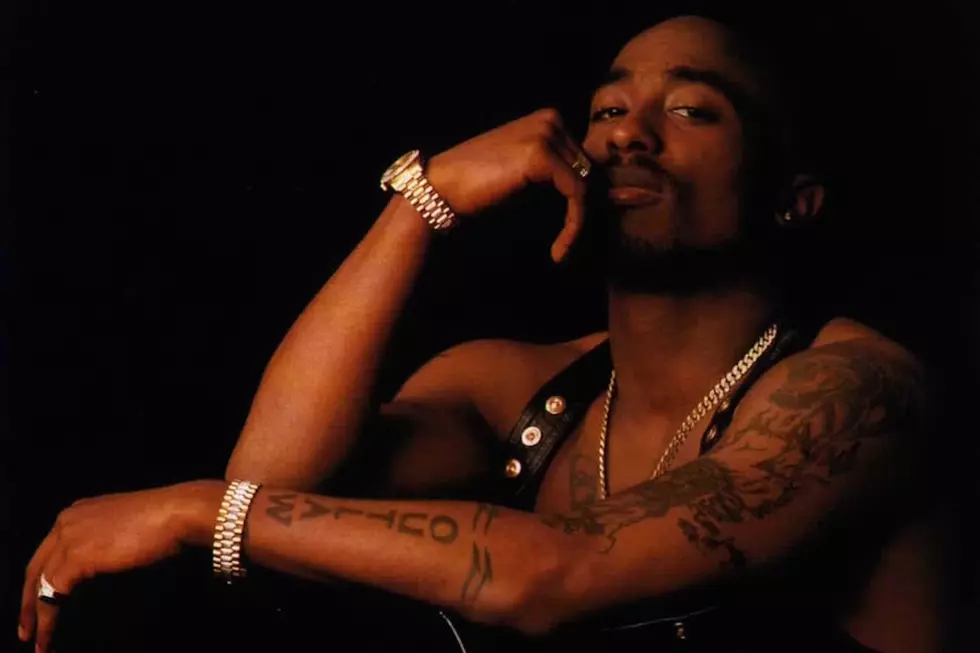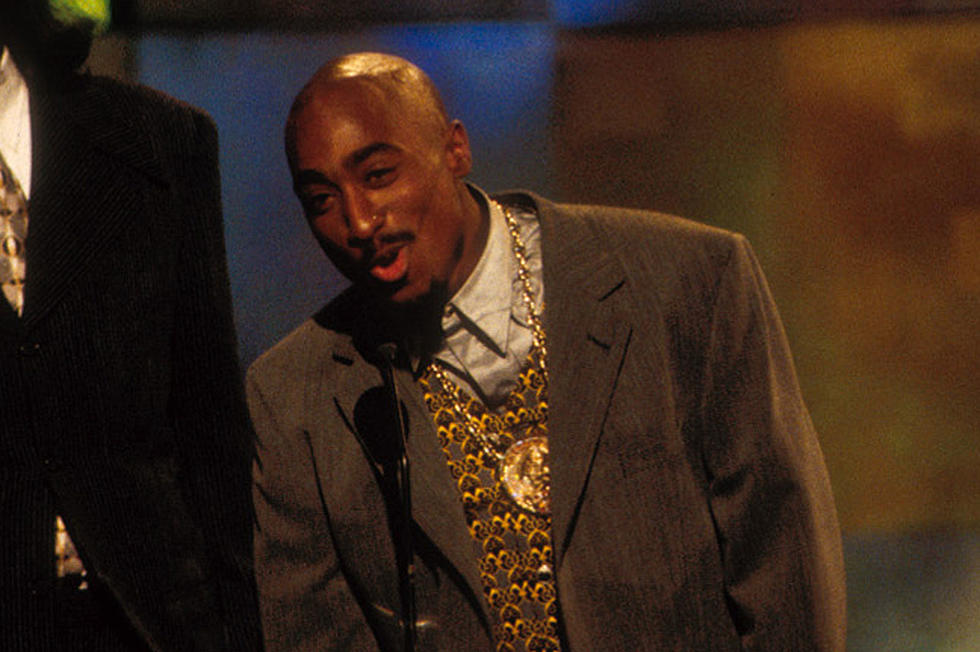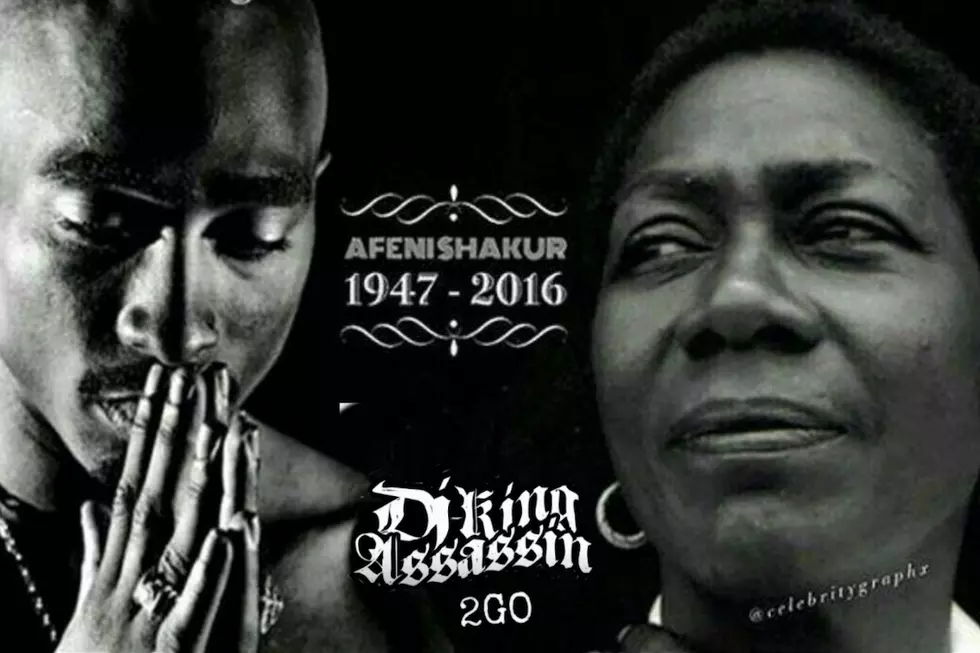
Afeni Shakur’s Life Was a Testament to the Righteousness of Rebellion
Afeni Shakur's death was met with grief and an outpouring of praise for the woman who'd come to symbolize hope and perseverance in the wake of her famous son's death. For a generation, Afeni was the proud mother of Tupac Shakur, the late hip-hop icon who'd risen to fame in the 1990s only to be murdered in 1996 at the age of 25. But Shakur's legacy was 2Pac's mom is only a fraction of why she was such an important and inspiring figure in Black culture. She was a soldier, a teacher, an activist and a curator. She was a Black Panther and a journalist. She was a revolutionary.
Born Alice Faye Williams and raised in tiny Lumberton, N.C.; the woman who would become Afeni Shakur witnessed her mother being abused at the hands of her father, which motivated Rosa Belle Williams to take her two daughters and move to New York City in 1958.
In the early 1960s, the teenaged Alice would become immersed in the teachings of Malcolm X and joined the Black Panther Movement in its relative infancy in 1964, and began writing for the Panther Post, the party’s official newsletter; often helping to funnel misinformation regarding the state of the Black Panther Party for the purpose of keeping outside agents unaware of what was really happening. In 1968, Williams began a relationship with fellow Panther member Lumumba Abdul Shakur and changed her name to Afeni Shakur.
She was never content to simply “play a role” within the Panthers or within her relationship. Afeni Shakur was smart and assertive, and she understood that the full liberation of Black people could not come to fruition without the full liberation of the Black woman as a focus of the agenda. Decades later, she would explain to biographer Jasmine Guy that a source of conflict within both the Panthers and her marriage to Lumumba was her commitment to empowering the women.
“I was pushing and pushing for women to have more rights in the party. I felt we were all soldiers together,” she said in Afeni Shakur: Evolution of A Revolutionary. “I pushed for weapons training classes for the women. My section always had weapons training courses. I would lead the Political Education classes to ensure that we were learning the same thing the men were learning. From dismantling weapons to using them. We were soldiers. Lumumba kept telling me women weren’t qualified. ‘Train them and they will be!’ I argued.”
Her belief in empowerment and her belief in herself would become cornerstones of her life as an activist. Afeni Shakur was a study in self-sufficiency but she also understood the power of community and the importance of leading others. And when she and 20 other Panthers were arrested in 1969, all of her beliefs were put to a major test.
“They treated us like thugs and enemies of the community,” Shakur would recall decades later. “Slammed into our bedrooms, knocked our children to the side; pressed a pregnant woman to the floor, belly down, jammed a gun into my stomach and into my husband’s face—and called us ‘thugs.’”
There were allegations of a series of planned January 1969 bombings and the Panthers were charged with several counts of conspiracy to bomb police stations, department stores, and other public places in New York City; Shakur would be released on bail in the fall of 1970. She would become pregnant a few months later by William Garland, a truck driver, before being returned to prison to await trail after her bail was revoked.
“I got pregnant while I was out on bail. I never thought that I wasn’t going to spend the rest of my life in jail. I was never getting out and that’s why I wanted to have this baby. Because I wanted to leave something here. I was going to jail for three hundred and twelve years. That’s what I was facing. But my sister was out. If I thought I was getting out, I never would have had the baby. I probably would have gotten an abortion.”
In 1971, the “Panther 21” trial began and would continue for the next seven months—and it would become the most expensive trial in New York state’s history. In his book The Briar Patch, former lawyer and late columnist Murray Kempton gave Shakur the credit for getting the prosecution’s case tossed; she defended herself against the NYPD and argued the case on the Panthers' behalf. Shakur and the other defendants were acquitted on May 12, 1971. On June 16 of that year, she gave birth to a son, Tupac Amaru Shakur.
Afeni would later marry Mutulu Shakur, who acted as stepfather to her son and with whom Afeni would have a daughter, Sekyiwa, before the marriage ended in 1982. Throughout the 1980s, Afeni struggled with a crack cocaine addiction that kept her frequently unemployed, as her teenaged son watched and grew more and more distant. By 1989, Tupac was barely speaking to his mother. But her influence had formed the bedrock for his entire socio-political perspective.
Tupac (stylized as “2Pac” as his recording career took off) would become one of the most important figures in hip-hop and late 20th century music over the course of the 1990s. He earned acclaim and generated controversy for both his political outspokenness and his seemingly-unending legal troubles and confrontations. He had his mother’s spirit, but most importantly, he had her philosophies. His early music was clearly influenced by Black Panther philosophies regarding self-defense, police brutality and community. But his words were also filtered through an unyielding anger that signified a sensitivity. And on his debut album, he didn't just direct that anger at the powers-that-be. On "Part-Time Mutha," Pac used the character of "Cindi" to angrily chastise his mother for her addictions.
Despite their estrangement, Afeni was proud of all that her son had accomplished. And shortly after Pac's emergence as a star, she moved back to New York City and joined Narcotics Anonymous and began turning her life around. By 1994, she and Tupac had reconciled; and he commemorated that reconnection with his classic song "Dear Mama," an ode to how hard Afeni had worked to raise a family in spite of all that was stacked against her.
Afeni Shakur would go on to become caretaker of her son's legacy after his murder. She managed the release of his music by creating Amaru Recordings in 1997 to oversee his posthumous material and re-releases and founded the Tupac Amaru Shakur Center For the Arts in Stone Mountain, GA to serve as a homebase for her son's legacy and for other creative endeavors. And she launched the Tupac Amaru Foundation for the Arts to sponsor art and music programs for young people.
She experienced enough for seven lifetimes, and Afeni Shakur has more than earned her rest. But as we celebrate her with "Dear Mama" and loving tributes, let's remember just how much she accomplished in her 69 years on this earth; and recognize that this woman epitomized the struggle and the hope that drove an entire generation.
Afeni Shakur will always be appreciated.
More From TheBoombox

![2Pac and Afeni Shakur Share Emotional Moment in New ‘All Eyez on Me’ Clip [WATCH]](http://townsquare.media/site/625/files/2017/05/2Pac-Afeni-AEOM-Clip.jpg?w=980&q=75)







